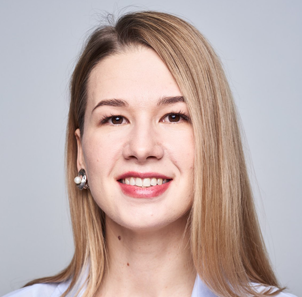Как сон влияет на способности малыша
Наши мамы и бабушки говорили нам в детстве, что во сне дети растут. И это правда: гормон роста, концентрация которого увеличивается во сне, помогает детям расти не только в первые 2 года жизни, но и в старшем возрасте [1].
С возрастом мы узнали, что во сне мозг еще и отдыхает. А научные исследования [2] подтверждают связь сна с памятью, обучаемостью, языковыми навыками и другими когнитивными функциями у детей.
Ученые проанализировали исследования по этой теме и выяснили, что качество и продолжительность сна у детей в первые 2 года жизни влияют на их память, освоение речи и другие способности не только в младенчестве, но и в более старшем возрасте.
Также выяснилось, что хороший сон способствует нормальному набору веса и росту детей.
Ученые проанализировали исследования по этой теме и выяснили, что качество и продолжительность сна у детей в первые 2 года жизни влияют на их память, освоение речи и другие способности не только в младенчестве, но и в более старшем возрасте.
Также выяснилось, что хороший сон способствует нормальному набору веса и росту детей.

Как меняется сон с возрастом?
Качество и количество сна стремительно меняется в первые несколько лет жизни. Новорожденные спят небольшими отрезками времени между кормлениями по 16–17 часов в сутки. Около 10–12 недель начинает формироваться длинный ночной сон, а общее суточное количество часов сна снижается до 14–15. К 6 месяцам — уже до 13–14 часов.
С увеличением времени бодрствования днем увеличивается и потребность в ночном сне.
Исследования показывают, что 20–30% детей часто просыпаются ночью в первые 2 года жизни, и по мере взросления ночных пробуждений становится меньше и меньше [3].
Какие способности в детях открывает хороший сон?
Научные исследования доказывают, что дневные сны помогают малышам изучать иностранные языки.
Например, ребенок, спавший как минимум 30 минут после урока иностранного языка, показывал хорошие результаты в тесте на пройденный материал через 4 часа после изучения новой темы [4].
Сон напрямую влияет на усвоение новой информации [5]. Для малышей это очень важно, во сне они запоминают то, чему недавно научились. А еще при недостатке сна дети часто бывают капризными. Какое уж тут обучение, когда нет настроения?
Еще одно исследование показало, что дети 6 и 12 месяцев, которые спали минимум 30 минут после изучения движений игрушечного щенка, лучше запомнили все происходившее на занятии [6].
Например, ребенок, спавший как минимум 30 минут после урока иностранного языка, показывал хорошие результаты в тесте на пройденный материал через 4 часа после изучения новой темы [4].
Сон напрямую влияет на усвоение новой информации [5]. Для малышей это очень важно, во сне они запоминают то, чему недавно научились. А еще при недостатке сна дети часто бывают капризными. Какое уж тут обучение, когда нет настроения?
Еще одно исследование показало, что дети 6 и 12 месяцев, которые спали минимум 30 минут после изучения движений игрушечного щенка, лучше запомнили все происходившее на занятии [6].
Сон влияет не только на запоминание нужного, но и на забывание ненужного, чтобы не переполнять мозг лишними подробностями. Помните, как Шерлок Холмс сравнивал голову с чердаком, где помимо нужного может храниться много всякого хлама? Тогда трудно найти в голове что-то важное, когда это необходимо. Вот почему ненужное важно забывать.
Дневной сон улучшает эмоции
Исследование [7] показало, что постоянные пропуски дневного сна у детей повышают риск развития проблем эмоционального самовыражения во взрослой жизни.
Моника ЛеБуржуа и ее коллеги сравнили эмоциональное состояние здоровых детей через час после того, как их не уложили спать днем в привычное время, и их состояние на следующий день, когда была соблюдена норма дневного сна ребенка.
Первое в своем роде исследование влияния пропуска сна на эмоциональные реакции детей показало, что следствием недосыпа ребенка может быть неспособность полноценно познавать новые, интересные для него вещи, а также справляться с неприятностями.
Моника ЛеБуржуа и ее коллеги сравнили эмоциональное состояние здоровых детей через час после того, как их не уложили спать днем в привычное время, и их состояние на следующий день, когда была соблюдена норма дневного сна ребенка.
Первое в своем роде исследование влияния пропуска сна на эмоциональные реакции детей показало, что следствием недосыпа ребенка может быть неспособность полноценно познавать новые, интересные для него вещи, а также справляться с неприятностями.
Мнение эксперта
Хочу поделиться с вами очень интересным исследованием [8] Его цель — изучение влияния продолжительности сна детей в возрасте в 3–24 мес. на когнитивные функции и языковое развитие детей в 2 года. Исследование спланировано очень грамотно. Коротко результат можно описать так:
«Дети, которые спят меньше 12 часов в сутки, имеют худшее речевое развитие, чем сверстники, спящие больше 12 часов». Также с лучшим речевым развитием был связан продолжительный ночной сон (более 10 часов).
Авторы хотели доказать, что причиной нарушения сна и снижения когнитивных функций были нарушения дыхания во сне (апноэ и храп). Но по полученным ими результатам на когнитивные шкалы не влияли никакие параметры, описывающие нарушения дыхания во сне. Только наличие апноэ во сне и в 1, и в 2 года приводило к снижению языкового развития. Вероятно, проблема в неподходящей организации сна, режиме, расслаблении перед сном. То есть в поведенческих причинах — это именно то, с чем работаем мы, консультанты по сну.
«Дети, которые спят меньше 12 часов в сутки, имеют худшее речевое развитие, чем сверстники, спящие больше 12 часов». Также с лучшим речевым развитием был связан продолжительный ночной сон (более 10 часов).
Авторы хотели доказать, что причиной нарушения сна и снижения когнитивных функций были нарушения дыхания во сне (апноэ и храп). Но по полученным ими результатам на когнитивные шкалы не влияли никакие параметры, описывающие нарушения дыхания во сне. Только наличие апноэ во сне и в 1, и в 2 года приводило к снижению языкового развития. Вероятно, проблема в неподходящей организации сна, режиме, расслаблении перед сном. То есть в поведенческих причинах — это именно то, с чем работаем мы, консультанты по сну.
В статье использованы научные исследования:
[1] Cornblath M, Parker M L, Reisner S H, Forbes A E, Daughaday W H. Secretion and metabolism of growth hormone in premature and full-term infants1. J Clin Endocrinol Metab. 1965;25(2):209–218.
[2] Обзор литературы: Tham E K, Schneider N, Broekman B F. Infant sleep and its relation with cognition and growth: a narrative review. Nat Sci Sleep. 2017;9, p.135-149.
[3] Mindell J A, Kuhn B, Lewin D S, Meltzer L J, Sadeh A; American Academy of Sleep Medicine. Behavioral treatment of bedtime problems and night wakings in infants and young children. Sleep. 2006;29(10):1263–1276.
Elias M F, Nicolson N A, Bora C, Johnston J. Sleep/wake patterns of breast-fed infants in the first 2 years of life. Pediatrics. 1986;77(3):322–329.
[4] Gómez R L, Bootzin R R, Nadel L. Naps promote abstraction in language-learning infants. Psychol Sci. 2006;17(8):670–674.
[5] Lukowski A F, Milojevich H M. Sleeping like a baby: examining relations between habitual infant sleep, recall memory, and generalization across cues at 10 months. Infant Behav Dev. 2013;36(3):369–376.
[6] Seehagen S, Konrad C, Herbert J S, Schneider S. Timely sleep facilitates declarative memory consolidation in infants. Proc Natl Acad Sci USA. 2015;112(5):1625–1629.
[7] Seehagen S, Konrad C, Herbert J S, Schneider S. Timely sleep facilitates declarative memory consolidation in infants. Proc Natl Acad Sci USA. 2015;112(5):1625–1629.
[8] Smithson L, Baird T, Tamana S K, Lau A, Mariasine J, Chikuma J, Lefebvre D L, Subbarao P, Becker A B, Turvey S E, Sears M R. The CHILD (Canadian Healthy Infant Longitudinal Development) Study Investigators, Beal D S, Pei J, Mandhane P J. Shorter sleep duration is associated with reduced cognitive development at two years of age. Sleep medicine. Official Journal of the World Sleep Society and International Pediatric Sleep Association. August 2018, Volume 48, 131–139.
[1] Cornblath M, Parker M L, Reisner S H, Forbes A E, Daughaday W H. Secretion and metabolism of growth hormone in premature and full-term infants1. J Clin Endocrinol Metab. 1965;25(2):209–218.
[2] Обзор литературы: Tham E K, Schneider N, Broekman B F. Infant sleep and its relation with cognition and growth: a narrative review. Nat Sci Sleep. 2017;9, p.135-149.
[3] Mindell J A, Kuhn B, Lewin D S, Meltzer L J, Sadeh A; American Academy of Sleep Medicine. Behavioral treatment of bedtime problems and night wakings in infants and young children. Sleep. 2006;29(10):1263–1276.
Elias M F, Nicolson N A, Bora C, Johnston J. Sleep/wake patterns of breast-fed infants in the first 2 years of life. Pediatrics. 1986;77(3):322–329.
[4] Gómez R L, Bootzin R R, Nadel L. Naps promote abstraction in language-learning infants. Psychol Sci. 2006;17(8):670–674.
[5] Lukowski A F, Milojevich H M. Sleeping like a baby: examining relations between habitual infant sleep, recall memory, and generalization across cues at 10 months. Infant Behav Dev. 2013;36(3):369–376.
[6] Seehagen S, Konrad C, Herbert J S, Schneider S. Timely sleep facilitates declarative memory consolidation in infants. Proc Natl Acad Sci USA. 2015;112(5):1625–1629.
[7] Seehagen S, Konrad C, Herbert J S, Schneider S. Timely sleep facilitates declarative memory consolidation in infants. Proc Natl Acad Sci USA. 2015;112(5):1625–1629.
[8] Smithson L, Baird T, Tamana S K, Lau A, Mariasine J, Chikuma J, Lefebvre D L, Subbarao P, Becker A B, Turvey S E, Sears M R. The CHILD (Canadian Healthy Infant Longitudinal Development) Study Investigators, Beal D S, Pei J, Mandhane P J. Shorter sleep duration is associated with reduced cognitive development at two years of age. Sleep medicine. Official Journal of the World Sleep Society and International Pediatric Sleep Association. August 2018, Volume 48, 131–139.
7922
0
BabySleep в Telegram
Наладить сон и режим: бесплатные советы, эфиры и подкасты
Личная консультация по сну до результата от Елены Мурадовой
Елена Мурадова – сертифицированный консультант по детскому и семейному сну (диплом IPHI Maternity & Child Sleep Consultant, США). Основоположник русскоязычной школы мягких методик, практикует с 2011 года.
Наши клиенты: Регина Тодоренко, Лариса Суркова, Наталья Подольская, Саша Зверева, Настасья Белочкина, Михаил и Влада Дашкиевы, Евгений Кузнецов и другие звездные мамы и папы уже наладили сон детей и рекомендуют Елену Мурадову как самого опытного консультанта в России.
Комментарии (0)
Оставить комментарийДостаточно ли спит ваш ребенок?
Таблица норм сна с рождения до 7 лет
Забирайте прямо сейчас в нашем телеграм-боте
Скачать таблицу PDF, 1,1 mb
Другие статьи
Смотреть всеРежим ребенка
«Мелатониновые пики» и «золотые часы сна»: мифы и реальность
Сон — это поистине загадочное состояние, в котором мы пребываем примерно треть свой жизни. А дети в первые годы жизни и вовсе половину!
Но я хочу поговорить не о важности сна, а о наших знаниях и представлениях о сне.
Моя рабо...
15.07.2019
185852
16
120
Развитие ребенка
1 год и 2 месяца. Девятый скачок развития ребенка: абстракции и принципы
Мышление ребенка стало более сложным и взрослым. Ходом его мысли теперь руководят принципы. Он не следует программе, как робот, а создает ее сам, вносит изменения и даже оценивает ее. Он обдумывает ходы, строит планы и взвешивает их последствия.
В...
07.10.2016
544217
106
937
Развитие ребенка
1 год и 5 месяцев. Десятый скачок развития ребенка: системы и управление
Ребенок замечает системы — единство взаимозависимых элементов. Он осознает, что его семья отличается от семьи его приятеля. Понимает, что его действия приводят к определенным событиям, он обладает властью над вещами, может принимать решения.
...
14.10.2016
378747
34
761
Подписывайтесь!
Бесплатные консультации и советы в наших соцсетях








